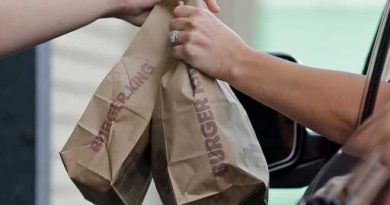Liquor sales in West Auckland: Group close to forcing public vote, UMR poll shows shift in opinion
A lobby group pushing for change to sale-of-liquor laws in West Auckland says it’s on the verge of gaining enough signatures to force a referendum.
And it has forced the release of UMR research – commissioned by its foe – that shows ground shifting in its favour, with 56 per cent of respondents saying they would vote to end a licensing trusts monopoly.
Read More
- Business Hub: Peter Beck on turning 100 Rocket Lab staff into millionaires
The Portage and Waitakere Licensing Trusts (commonly known as “The Trusts”) have a lock on bottle-store sales in most of West Auckland – meaning no beer or wine in supermarkets or independent liquor chains.
The Trusts also have a near-monopoly on pubs in the region, although Little Creatures in Hobsonville Pt won an exception because it has its own craft-brewing operation on site.
The West Auckland Licensing Trusts Action Group wants change. Spokesman Nick Smale says it does not want to disestablish The Trusts, but does want to end their monopoly.
Change can come through a referendum, but a popular vote can only be staged if Trusts Action gains the signatures of 15 per cent of voters in West Auckland, which would be at least 17,000 signatures in the Waitakere Trust area, and 13,000 from those within the Portage Trust boundary.
Petition almost over the top
The Trusts Action anti-monopoly petition started in August 2018 and has no fixed end-date. The group did not hit its target in time for the 2019 local body elections. But locals will have noticed a fresh drive for signatures in the past few weeks, with trestle tablesoutside New World and Pak’NSave supermarkets. The Countdown chain and local malls have refused access).
“Overall we have about 50,000 signatures,” Smale told the Herald this week.
“Of those, we estimate 33,000 are for the Waitakere Licensing Trust, which is almost double the requirement,” he says.
“But we’ve still got a bit of work to do to get to the target for the Portage Licensing Trust.”
Smale’s group is working on the general rule of thumb for petition-gatherers that you need double the minimum threshold to safely ensure you’ve got enough valid signatures.
If the petition does get over the top, the vote can coincide with the next local body elections (due in 2022) or between times. That decision sits with a government agency called Alcohol Regulatory and Licensing Authority or “Arla”, which was set up in 2012 and is always chaired by a district court judge, and has up to three district court judges as members.
Public mood shifts in favour of competition
The last referendum was in 2003, when 58 per cent voted to retain The Trusts.
Smale says a new UMR survey shows that attitudes have shifted since then in the fast-growing west and northwest.
The UMR poll, commissioned by The Trusts and, in Smale’s words, “reluctantly released due to Official Information Act obligations” was released after an appeal to the Chief Ombudsman.
A Trusts presentation on UMR’s latest research, dated July 2020, says in the Waitakere area 56 per cent would vote for competition vs 44 per cent who would vote to retain The Trusts’ exclusive right to sell alcohol. Respondents in the Portage Trust area were also 56 per cent in favour of compeition.
Allan Pollard, who took over as chief executive of The Trusts in June 2020, said the swing reflected, in part, a shift in methodology from phone to internet polling of 760 adults. “But at the end of the day, the results are the results,” he told the Herald.
The CEO said that being relatively new to the area, after moving up from Wellington, he was struck by the relatively low level of knowledge about The Trusts. The UMR research showed those who knew less about his organisation were more likely to vote for competition. “We want to be liked and respected. What’s really struck me is the lack of understanding,” he said. The Trusts planned an education campaign over the next 12 months.
Puppets?
On social media, Smale’s loosely structured group of a dozen volunteers has been accused of being puppets for the two major supermarket chains, or newcomer to the northwest CostCo.
On a local Facebook group, it was alleged that the Segway ridden by one of Smale’s Trusts Action colleagues as he distributed flyers was paid for by a supermarket. In fact, it was necessitated by a long-term condition and funded by ACC.
“We all volunteer our time and we pay our costs using donations, or from our own pockets,” Smale says.
“We’re regularly accused of being ‘astroturfers’ for the supermarkets but I can categorically say that isn’t the case. If we had the resources of the supermarkets the petition could have been done in a few weeks.
“We also don’t have plans to open bars or bottle stores ourselves. Our motivations are varied and personal but none of us are motivated by profit.
“We are playing with very small amounts of money and our donations have come from a large number of different people.”
The Trusts Action website lists $14,530 in donations, and lists what the money was spent on.
'We need to perform better'
The Trusts says its annual Million Dollar Mission – where the public decides where $1m or roughly a third of its annual community allocation is spent – receives around 200,000 votes from members of the public.
The competition is keenly anticipated by community groups, schools and sports clubs.
The Trusts also helped to bankroll the recent, much-needed upgrade to the Karekare Surf Life Saving Club’s headquarted.
While it won’t be shy of promoting that, or other donations, The Trusts has also recently had something of a shift in tactics from blunt self-promotion, and blunt opposition to Smale’s group, to acknowledging it needs to lift its game.
Although he has sparred with Smale on social media, new CEO Pollard also said in a January video update: “I recognise that, as a business, we need to perform better.
“We need to improve our cost efficiency and lift our sales and service performance.
“There’s a long way to go, but we are making good progress on this.”
The Trusts are updating their operational strategy, Pollard said. The organisation had already “reduced our support office”.
“Another priority area for me is looking at how we can better engage with the community we serve in West Auckland,” Pollard said.
“In a living example of how we can do things differently, we have made a decision to be more open and transparent about how our operating information is released.
“As stewards of community money, it is crucially important that we be as transparent as we can possibly be.”
Some matters could not be shared, because of sensitivity, the CEOsaid, but results of Official Information Act requests are now published on The Trusts website, Pollard said.
One of Trusts Action’s many criticisms over lack of transparency was that The Trusts’ refused to reveal its chief executive’s salary. One of the documents released in January includes an FY2018 salary table, which includes one employee (presumably the CEO) in the $510,000 to $520,000 band. In total, five employees earned more than $200,000.
Smale noted the change of heart over transparency only came after his organisation complained to the Ombudsman. In December, The Trusts received two scathing rulings from the public watchdog for withholding documents and conducting business behind closed doors.
Pollard said at the time, “I think we accept the processes could have been better, and that this was a matter of process”.
Money returned to the community on the up
As well as pledging to be more open with information, The Trusts has been more open with its chequebook lately.
Trusts Action said The Trusts’ average profit in the five years to 2019 was $6.35m from its liquor and pokie operations, with an average $786,000 given back.
In FY2018, The Trusts returned $1.1m to the community. In FY2019 it allocated $2.5m in community grants. In FY2020, $3m was earmarked for donation.
Pollard said the final amount returned to the community in the year to June 2021 would be the $1.5m to $1.7 million because of the pandemic’s impact on The Trusts’ business, and a decision to retain all staff, on full pay. The Trusts had also made emergency grants of $125,000 to each of the Waitakere and Portage areas, he said, with the funds going to groups helping low-income people hit by the outbreak.
The Trusts has also distributed mini toolkits and first aid kits to West Auckland households over the past two years.
The Trusts Action case
Trusts Action says it carried out a survey that found the 26 Trusts-owned bottle stores in West Auckland are 10 per cent more expensive than those elsewhere in the city. (Your correspondent’s favourite red costs $25 from Trusts-owned West Liquor, but $20 from Farro Fresh on the neighbouring North Shore).
Smale is still in a barney with The Trusts over whether a surge in marketing spend he tracked in the run-up to the 2019 local body elections represented a misuse of funds for political means or was, as The Trusts maintain, simply an extension of its usual marketing. (The 2019 local body elections did not include a referendum, in the final event, with Trusts Action still short on signatures at that point, but did feature the usual vote for six elected positions on the Waitakere Licensing Trust, and three for Portage Licensing Trust. Labour Party and Labour/Green-affiliated City Vision candidates dominated the results – maintaining the status quo – with Trusts Action missing out.)
And although some supporters of The Trusts say limited alcohol is better from a public health and community standpoint, Trusts Action says the number of liquor outlets and bars is a separate issue from who controls them.
Smale says many of The Trusts’ 10 bars are down-at-heel, and that the organisation’s near-monopoly on pubs and bars is a “handbrake on hospitality” in the west.
The Trusts Action spokesman says private operators would contribute a higher percentage of their profits to the community (if indirectly, through tax); that The Trusts could still generate profit and a return to the community if they lifted their game after the arrival of private contenders, and that punters would benefit from competition and choice.
Pollard told the Herald that elsewhere in the country, “Communities are trying to regain more control of liquor licensing. Here, we have elected members of the community in control. I think that’s the right model.”
Source: Read Full Article

/cloudfront-ap-southeast-2.images.arcpublishing.com/nzme/HNZ7UANXFOIZGNZHBDQIPUT57I.jpg)
/cloudfront-ap-southeast-2.images.arcpublishing.com/nzme/JN55HSCLVXI2ADPT2UZDRL53NQ.jpg)
/cloudfront-ap-southeast-2.images.arcpublishing.com/nzme/OTAF2UZW4TP3IGMYAO3LETLQX4.jpg)


